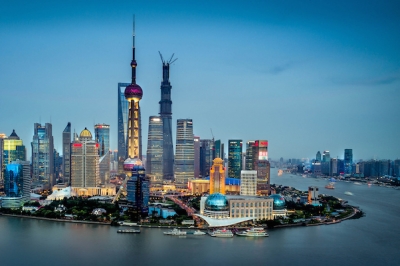ClassNK provides additional information with regard to the regulations on the sulphur content of fuel within Chinese Emissions Control Areas. From 1 April 2016, ships berthing at core ports within the Yangtze River Delta (Port of Shanghai, Port of Zhoushan, Port of Ningbo, Port of Suzhou including Zhangjiagang, Changshu and Taicang, and Port of Nantong) are required to use fuel oils whose sulphur content does not exceed 0.5% m/m.
In this regard, the Shanghai Municipal Transport Commission and the Shanghai Maritime Safety Administration have issued a work plan on the implementation of regulations from 1 April 2016.
The requirements of the Work Plan are as follows:
- Higher emission control requirements will be imposed in Shanghai Port (including sea areas and inland waters) within the Yangtze River Delta Domestic Emission Control Area (hereinafter referred to as “Yangtze River Delta DECA”) on and after 1 April 2016.
- Vessels navigating, anchoring or operating in the waters of Shanghai Port within the Yangtze River Delta DECA , excluding military vessels, sport vessels and fishing boats, shall meet the requirements of the Implementation Plan and the Work Plan
- Any fuel oil used on vessels engaged in international voyages and domestic sea-going vessels shall be in compliance with applicable international conventions and the Work Plan. The sulphur content of any fuel oil used on board vessels berthing at Shanghai Port (excluding the first hour after arrival and the last hour before departure) shall not exceed 0.5% m/m on and after 1 April 2016.
- Inland waterways ships and river-sea intermodel ships shall use diesel oil in compliance with the GB252 criteria. Residual fuel oil is not allowed to be used on these vessels. The sulphur content of diesel oil used on public service ships, recreational ships, passenger ferries, garbage and sewage collection ships and vessels navigating, berthing or operating in the core area of the Huangpu River and in the Suzhou River (inside the Middle Ring of Shanghai) shall not exceed the limits required by the national IV standards for diesel fuels used on motor vehicles.
- Based on the monitoring and assessment of the implementation of the aforementioned control measures, and with consent of the Shanghai Municipal People’s Government, Shanghai Municipal Transport Commission and Shanghai Maritime Safety Administration will declare the dates for implementing the following control measures in due time in advance:
- The sulphur content of any fuel oil used on board vessels entering waters of the Shanghai Port within the Yangtze River Delta DECA shall not exceed 0.5% m/m.
- The sulphur content of any fuel oil used on board vessels berthing at Shanghai Port (excluding the first hour after arrival and the last hour before departure) shall not exceed 0.1% m/m.
- The sulphur content of any fuel oil used on board vessels entering waters of the Shanghai Port within the Yangtze River Delta DECA shall not exceed 0.1% m/m.
- Vessels can take alternative measures approved by the Maritime Safety Administration of the People’s Republic of China equivalent to the aforementioned control measures, inter alia, using shore power and clean energy.
- This Announcement is valid until 31 December 2020.
Necessary on-board documents and inspection requirements
Ships changing over fuel oils are to record the information of each fuel changeover. The start/end dates and times of changeover, ship position, sulphur content of fuel oils, used amount of low sulphur fuel oil and operation staff name are to be recorded in the engine logbook. A written procedure for fuel oil changeover is to be provided to the ship. The bunker delivery note is to be kept on board for a period of three years and the bunker sample is to be kept on board for a period of one year.
In cases where shore-power facilities are available for both the ship and the quay, the use of shore power is to take precedence. Ships using shore power are to record the information of each shore-power use including the start/end dates, times of the use and operation staff name in the engine logbook.
In case of ships using ‘clean energy’ such as liquefied natural gas, the kind of ‘clean energy’ is to be noted in the IAPP Certificate. Dual-fueled ships are to record the information of each changeover to ‘clean energy’ including used amount of each fuel, dates and times of changeover operation, ship position and operation staff name in the engine logbook.
In case of ships using exhaust gas after treatment systems as alternative measures, the certificate of the system is to be provided and the relevant information is to be noted in the IAPP Certificate. Ships are to record the information of each use of the exhaust gas after treatment system including the start/end dates and times of the use, ship position and operation staff name in engine logbook.
Source: ClassNK
































































